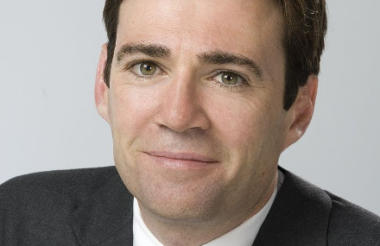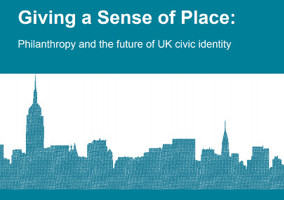Devolution can create better relationships between voluntary organisations and local government and lead to an improvement in procurement practices, a Labour Party Conference fringe event has heard.
The event was titled ‘Can Westminster fix out cities? Devolution, philanthropy and civil renewal’ and was organised by Barrow Cadbury Trust, Charities Aid Foundation and New Philanthropy Capital. It looked at the impact devolution could have on philanthropy.
The panel consisted of Andy Burnham Labour mayor of Greater Manchester, Catherine West MP, chair of the APPG for reform, decentralisation and devolution in the UK, Lord Adebowale, chair of social enterprise UK, Dan Corry, chief executive of NPC, and Rhodri Davies, head of giving through at CAF. It was chaired by Sonia Sodha, chief leader writer at the Observer.
The event follows a report from Davies Giving a Sense of place, which said philanthropy should be central to the discussion about the future of cities in the UK.
Speaking at the fringe event, Burnham said that Westminster had “failed the North of England”, leaving “us with a very unequal country”. He said it was all governments that had led to this, and that it is not just a problem of the Conservative government.
He said that Westminster creates a “highly centralised political system”, and that this is in part due to Westminster historically distrusting local councils which leaves little in-between London and the rest of the country. He added that if Westminster can “get away with ignoring the North, it will do”, and that the “view of life inside the M25 dominates the politics of everyone and everywhere”.
Burnham said: “Westminster created the problem. It can only fix it by deepening devolution.”
'Forging new relationships with charities'
Reflecting on how politics can be renewed through devolution, Burnham said the first thing in his mind would be “forging new relationships with communities and the voluntary sector”.
He said: “One thing I am bringing through as Mayor of Manchester is a new relationship with the voluntary sector where we move away from this position of distrust, where we make them compete for project funding or annual funding, and constantly re-tendering.
“Let's welcome them in as equal partners in the building of our communities, let's give them five or even ten year contracts, core fund them, so that communities can contribute to the things we want to achieve.”
‘Stupid procurement practices’
Dan Corry, chief executive of NPC, said that he hopes that the devo mayors can bring focus back to civil society. He said it should work because “in a geographical area what we have is a whole set of players and interactions – the private, the public and civil society. When they are all working together then you have a place that works, that people are proud to live in.”
He said mayors can help in a number of ways. He said that includes capacity support, “which the sector is suffering from”. He said mayors can also “stop shutting charities out of contracts by stupid procurement policies”. He said these have been blamed up to now on the EU but “soon we won't even be able to blame the EU – it never has been the EU, actually, it has been bad procurement policies”.
Corry also called on mayors to, as much as they can, give charities a “seat at the table with government for an area, so that their voice is heard”. He said that that “will put the responsibility on civil society to get its act together”.
He also said mayors needed to “support philanthropy around geographic areas” and highlighted the role community foundations could play.
He said: “We have quite a strong and growing foundation movement in this country which is very powerful. They are trying to think how they want to take themselves now we have these devo areas. We can bring them together with individuals, with firms and their philanthropists. And I think the elected mayors are the people to give it to that.
“This civil society agenda should play straight into the hands of the devo mayors and I hope very much that they will want to take that up.”
Philanthropy London-centric
Speaking from the audience, Duncan Shrubsole, director of policy, partnerships and communications at the Lloyds Bank Foundation, said that “if politics is London-centric, then philanthropy is even more London-centric”.
He continued to say that “philanthropy is about choice”, and because of this “we have got to have a much more activist approach to get local businesses outside of London, and foundations to get out of London”.
On this London-centric approach, Shrubsole said: “We have more charities in Surrey than we have in Solihull, yet need is much higher in Solihull. So yes, we need Westminster to change, but we need philanthropy to change too.”
Davies agreed on this point. He said: “I think philanthropic money is centralised and I think that is a reflection on the way the economy has been centralised and weighted towards London.”
On the idea of philanthropy being about choice, he said: “That is why we have a narrative about what the value of philanthropy is. It does have limitations as it is based on individual decisions but I think we have to be positive about where it does add value in terms of innovation.”
Lord Adebowale added that the ‘choice’ element only comes about from the work of campaigners.
He said: “Many of the changes that have taken place have so because lots of people have campaigned really hard to bring it to the attention of philanthropists, not the other way around.
“I don't want to live in a society where your homelessness is ended because you are 'lucky enough' to have somebody give away a percentage of their salary.”
Related articles












